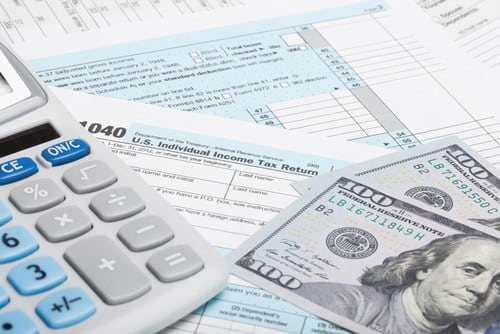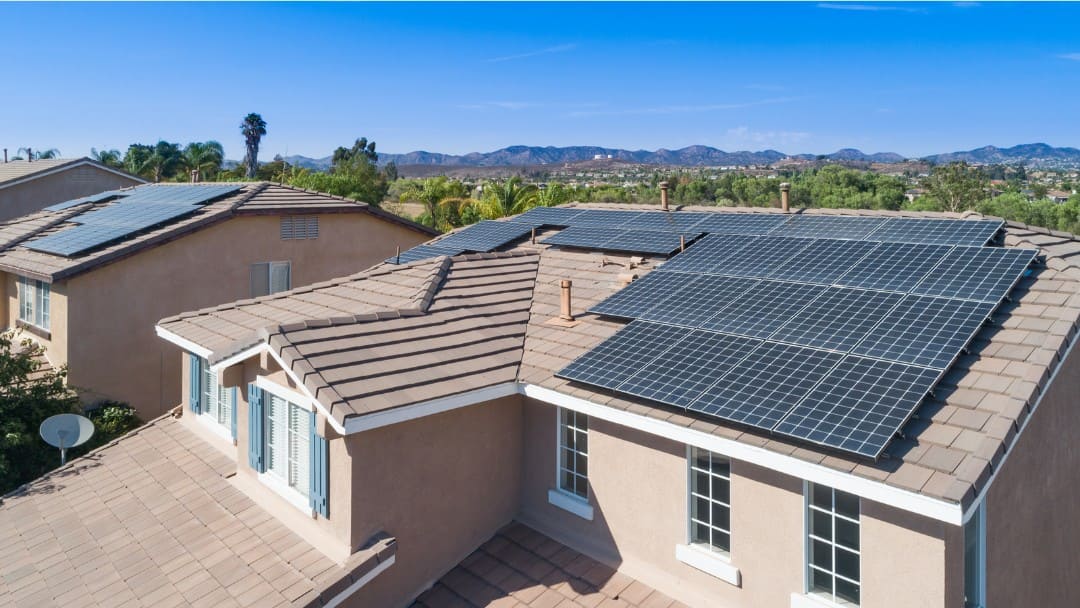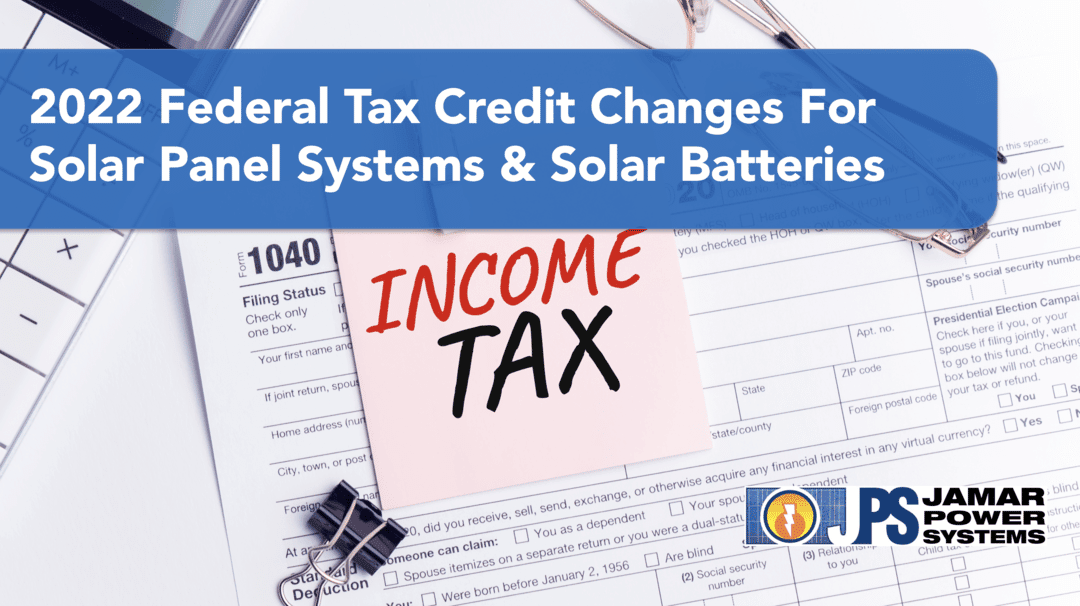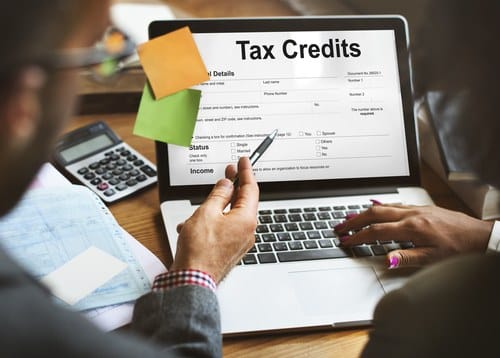2023 Federal Tax Credit Changes For Solar Energy Systems
On August 16th, 2022, U.S. Congress passed the “The Inflation Reduction Act”, increasing federal income tax credits for investing in solar energy systems. This act was signed into law by President Biden.
The new law is effective immediately and supersedes all previous solar tax credit laws.
The federal tax credit for solar panel systems is sometimes referred to as the investment tax credit (ITC). It’s a tax credit that helps you pay less in federal income taxes.
If you install a solar energy system on your home property or commercial property before Dec. 2032, thanks to these federal tax credit changes for solar energy systems, you might be eligible for a 30% deduction of federal taxes.
To see if you qualify for a tax credit, keep on reading.
How Does A Federal Income Tax Credit Work?
A federal income tax credit aims at reducing the amount you will see on your yearly tax bill.
Tax credits are very different from tax deductions.
At the end of the year, federal income tax credits provide you with a dollar-for-dollar reduction for the income tax that you owe, up to a maximum of your total tax liability.
The new law (The Inflation Reduction Act) increased and extended federal income tax credits for residential solar panel and battery systems, electric vehicles (EVs), EV charging stations, and more.
If The Tax Credit Exceeds My Tax Liability Do I Still Get The Full Credit?
The simple answer is not this year. Solar tax credits are non-refundable and strictly limited to your federal income tax liability; the amount of tax you owe or have pre-paid to the IRS.
Although you cannot claim more credit than the amount you owe in taxes, the government offers the option to roll over your credit. If you have a tax credit left over, you can apply it to next year’s tax bill.

Who Is Eligible For The Solar Tax Credit?
Solar tax credits become available to most people who purchase and install a solar energy system. It also applies to solar batteries as long as they are being charged by a solar power system.
If you buy and install a solar energy system on your property and pay federal income tax, a tax credit may be available to you by the government (consult your tax advisor). The catch is that you must have installed the system before December 31, 2032.
Homeowners will be eligible to reduce their tax bill by 30% of the installation costs.
The tax credit reduces after December 31, 2032 to:
- 26% in 2033
- 22% in 2034
- 0% in 2035 and beyond
The government has implemented a tax cut as an incentive for homeowners to work towards a more clean energy environment.
Can I Claim A Tax Credit For Rental Properties?
The International Revenue Service (IRS) states that you cannot claim a tax credit on solar energy systems installed on your rental properties but can claim it if you live there for a portion of the year as a second residence, then renting it the rest of the year.
If this is your situation, the tax credit is reduced to match the time you spend living at the property.
For every three months of residing at the property, you are entitled to a 25% reduction in tax credit based on the initial costs of the system.
Important: Consult your tax advisor for exact details and requirements.

What Expenses Are Covered By The Solar Tax Credit?
If you are eligible for the tax credit, keep in mind that not all expenses are part of the deal.
These are the covered expenses:
- Material of the panels
- Installation process
- Labor assembly
- Preparation of the installation
- Permits & inspections
- Sales taxes
- Home batteries (3 kW or more) charged by the solar system
- Wiring, inverters, and mounting equipment
Homeowners can minimize their tax bills even more by replacing old windows, doors, heaters, and air conditioners with new energy-efficient materials.
What Expenses Are Not Covered By The Tax Credit?
There are a few expenses that will not be eligible for reducing your final tax bill at the end of the year.
These disallowed expenses are:
- Utility rebates (must be subtracted from the original installation costs).
- State rebates (State tax credits can’t be combined with federal tax credits).
Does The State Of California Have A Solar Tax Credit In 2023?
Solar tax credits vary from State to State.
The state of California no longer provides income tax credits for solar panel systems but they do offer incentives for solar energy storage systems (batteries).
California has a Self-Generation Incense Program (SGIP) which has limited funds each year for energy storage systems that meet a whole host of required criteria. SGIP credits also reduce federal solar tax credits. Consult your tax advisor.
For more information see the CA Public Utilities Commission website or brochure and SDG&E’s SGIP programs.
Is There A Solar Tax Credit In 2022?
Yes, if you have purchased a solar energy system and had it installed on your property in 2022, 30% of the total cost may be eligible for the ITC tax credit.
For example, if you paid $10,000 for a solar energy system (including the expenses listed above), 30% of the $10,000 ($3,000) may be credited toward your federal income tax bill.
Does Re-roofing Before Solar Panel Installation Qualify For The Federal Solar Tax Credit?
As stated earlier in this article, materials used with the solar system must be new energy materials to qualify for any tax credit.
The only roofing that qualifies for the tax credit are those that are solar roofing tiles and produce electricity.

How Do I Claim The Solar Tax Credit?
Like any other tax credit, you must file your taxes under the correct form. According to the IRS, form 5695 is required for anyone qualifying to receive credits from their solar energy system.
The two tax credits available are:
1. The nonbusiness energy property credit.
2. The residential energy efficient property credit.
To qualify for residential tax credits, you must meet the following:
● Homeowner.
● Residential property.
● Living on the property for part of the year.
It is highly advisable to consult a tax advisor to see if you qualify for the solar tax credit.
Solar Energy Is Here To Stay
If you haven’t already noticed, solar energy is the new trend. A way of life that shall never end. The government is providing tax credits to those who use solar energy systems now and in the future. We are aiming for a brighter and more efficient future collectively.
Just because you do not currently own any solar energy systems on your property, doesn’t mean you can’t have them later.
Utilizing a solar system is a no-brainer. It is a win-win situation. Who doesn’t want to save money on electricity while helping the environment and receive a income tax credit while doing so?
What are you waiting for? Get a free solar energy analysis for your home to see if solar power can save you money!
See our related article for information on the new tax credits for electric vehicles (EV) and EV charging stations.
Your content goes here. Edit or remove this text inline or in the module Content settings. You can also style every aspect of this content in the module Design settings and even apply custom CSS to this text in the module Advanced settings.
Disclaimer: We are not tax advisors. This article is designed to provide basic information on the 2022 Inflation Reduction Act federal tax credit changes for solar energy systems and solar batteries. You should use this information as a point of reference rather than as a guide for financial or tax guidance. We are not responsible for its accuracy. Consult your tax advisor for exact details and how they apply to you.
- How Solar Batteries Work - March 4, 2024
- Solar Battery or Generator for Emergency Backup Power? - January 30, 2024
- How to Check If Your Solar Panels Are Charging The Solar Battery - January 12, 2024




